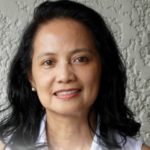The idea behind the «One day, one team, one chapter…» series is to present the four books published in the framework of the ICSEM Project and the Empower-SE Action, Social Enterprise in Asia, Social Enterprise in Latin America, Social Enterprise in Western Europe and Social Enterprise in Central and Eastern Europe, and to introduce the so many incredible people who took part in the crazy “ICSEM adventure”!

SEPPS: a significant model of social enterprise in response to the paradox of rising inequality and widespread poverty amid economic growth
It was in the 1990s that social enterprise first surfaced as a concept in the Philippines, as mechanisms for collaboration and cooperation to share prosperity among a community of worker-owners. Over time, external influences from various schools of thought interfaced with the perspectives and practice of stakeholders engaged in seeking innovative solutions to poverty and inequality. In 2002, practitioners and scholars started developing a framework to understand the social enterprise phenomenon in a developing country context. It has been this collaboration between practitioners and scholars that resulted in the conceptual construct of “social enterprises with the poor as primary stakeholders” (SEPPS) in the Philippines and other developing countries in Asia.
SEPPS are social-mission-driven, wealth-creating organisations that have a distributive enterprise philosophy. Their main objective is poverty reduction/alleviation or improving the quality of life of specific segments of the poor.
The chapter shares the findings from various studies conducted on SEPPS since 2012, analysing the main forms of SEPPS observed; the types of roles performed by the poor as well as the services provided to the poor by SEPPS; stakeholder engagement models or the various ways in which SEPPS engage the poor and their differentiated impact on poverty; and how SEPPS is being institutionalised as a major model of social enterprise needing government support as a major pathway to eradicate poverty.
The chapter concludes that SEPPS are a significant model of social enterprise in response to the paradox of rising inequality and widespread poverty amid economic growth in the Philippines. They are responses to state and market failures and are hybrid organisations playing a dual role of pursuing change in markets and the economy. On the one hand, they are leading actors in building a strong social economy, guided by the principles of reciprocity and redistribution. On the other hand, they are catalysing the process of giving value to social and environmental costs and returns and providing benchmarks for the pursuit of inclusive and ethical markets.
Given that the COVID-19 pandemic has affected the poor the most and increased the incidence of poverty, the role of SEPPS as transformational partners of the poor cannot be overemphasised in developing countries such as the Philippines. Indeed, SEPPS are and would be playing a critical role in the process of inclusive recovery and building back in a fairer way.
The country team: Marie Lisa (The Philippines)
Marie Lisa M. Dacanay, PhD, is the founding President of the Institute for Social Entrepreneurship in Asia (ISEA). She has more than 30 years of experience in development management and consulting, social entrepreneurship and international development cooperation. She is a mentor of social entrepreneurs, a pioneer in research and education on social entrepreneurship in Asia and an advocate for developing collaborative partnerships between social enterprises, businesses and governments to achieve the Sustainable Development Goals (SDGs). As ISEA President, she convenes the Social and Community Enterprise Constituency of the Asia-Pacific Regional Civil Society Engagement Mechanism, which deals with the United Nations system on the SDGs. She is also the convenor of the Poverty Reduction through Social Entrepreneurship (PRESENT) Coalition, which is lobbying for the enactment of a PRESENT Bill in the Philippines. She was recognised by the Schwab Foundation for Social Entrepreneurship and World Economic Forum as Outstanding Social Innovation Thought Leader of the Year 2019.
Dr. Dacanay has a degree in B.S. in Statistics (1984) from the University of the Philippines, a Master in Development Management (with distinction, 1996) from the Asian Institute of Management (the Philippines) and a PhD (2012) from Copenhagen Business School (Denmark).
Visit the Routledge website to get information about the four ICSEM books as well as the full Social Enterprise and Social Innovation series. You can also contact these national researchers to learn more about their work or download the ICSEM Project’s flyer here.


